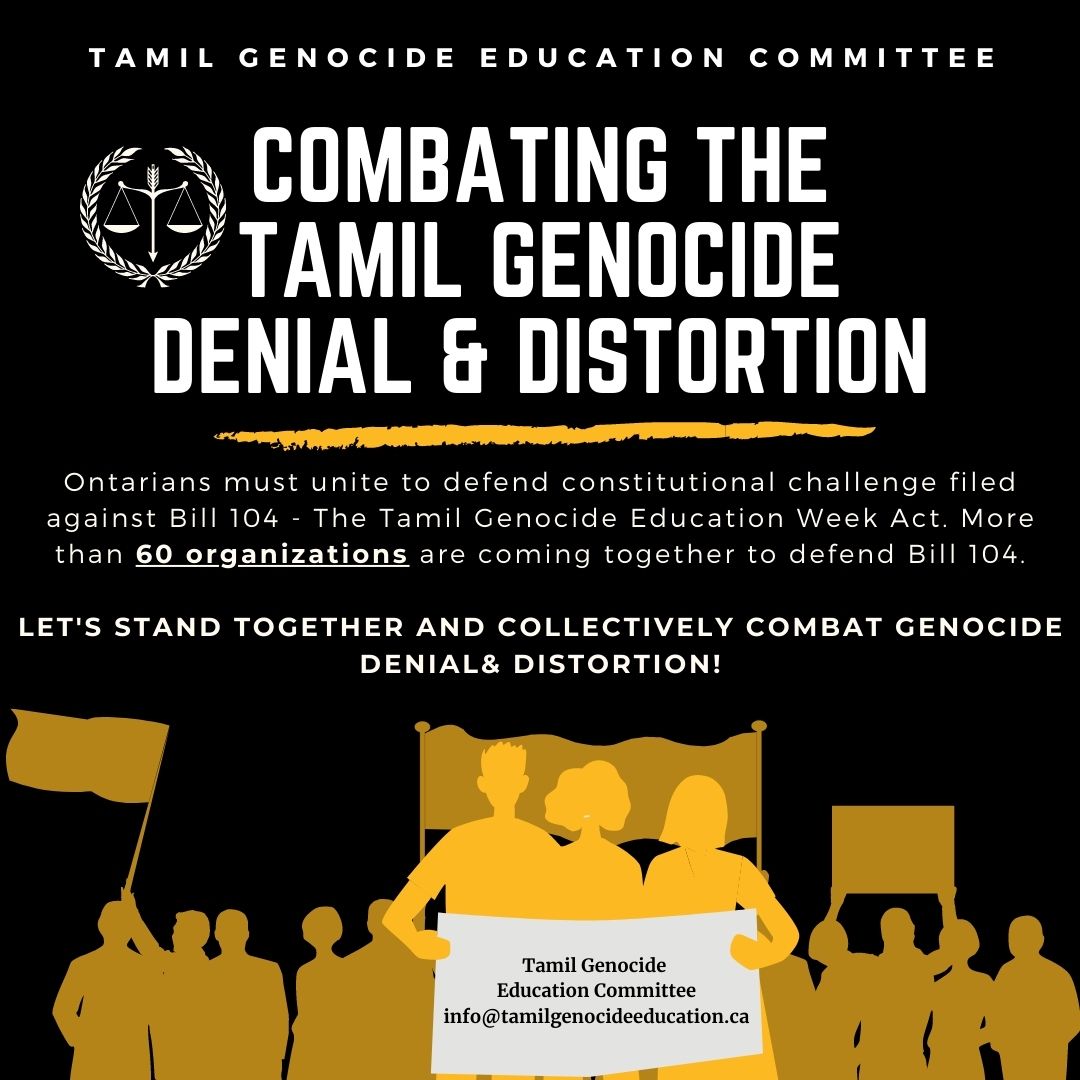
Tamil Canadian groups have released a statement calling on Ontarians "to rally behind" Bill 104, the Tamil Genocide Education Week Act, to "protect it" from its recent constitutional challenges. The groups called on the public to "stand together and collectively combat genocide denial and distortion."
Bill 104 introduced a seven-day period ending on 18 May in which "all Ontarians are encouraged to educate themselves about and to maintain their awareness of the Tamil Genocide and other genocides that have occurred in world history."
Three separate groups are currently challenging the bill. One group, The Sri Lankan Canadian Action Coalition (SLCAC), has claimed the bill is "unconstitutional," outrightly claiming that the Tamil Genocide was a "myth propagated by the Pro-LTTE Tamil Diaspora, which despite not having a single shred of solid evidence."
However, responding to the constitutional challenges, 63 Tamil Canadian organizations stated;
"As history repeatedly reminds us, the perpetrators have always denied their crimes of genocide. This deliberate attempt in order to target this "Bill-104 Tamil Genocide Education Week Act" suggests that Tamil Genocide deniers are actively working to silence the victims of the Tamil Genocide. "
"Denial is the final stage of genocide. The challenge to this historically relevant bill is deeply disturbing as it further reinforces the denial. Genocide does not end after the physical and material destruction of a group but carries on with nefarious targeted campaigns to rid memory and healing…The overwhelming intergenerational impacts of Tamil Genocide are felt by Tamil people. However, taking away their opportunity to begin to heal; harms the progress made by having their pain acknowledged," the groups continued.
In addition, the constitutional challenges to Bill 104 state that the Province of Ontario acted "ultra vires," meaning that even though the government passed the bill, they acted outside of their powers in doing so.
Although, in their statement, the Tamil Canadian organizations stated;
"Bill 104 was unanimously passed after the 3rd reading with the full support of elected representatives across all parties and received royal assent on 12 May 2021." They also highlighted that "when Bill 104 passed on 12 May 2021, it was met with great community support."
"Acknowledgement is an important part of healing. Having a publicly acknowledged period to focus on education about genocide allows so many who are in the grips of trauma caused by the Tamil Genocide and other genocides to begin the journey to healing," the groups added.
Further, the National Council of Canadian Tamils (NCCT), Canadian Tamil Youth Alliance (CTYA), and Canadian Tamil Academy (CTA) announced "they are actively working with a legal team" to address the challenges the bill currently faces.
Earlier this month, the Ontario government announced they will be providing $48,950 worth of funding to create workshops targeting mental health and intergenerational trauma caused by the Tamil Genocide. These workshops, similar to Bill 104, targets the perverse and longterm effects caused by the genocide.
Read the full statement here.


